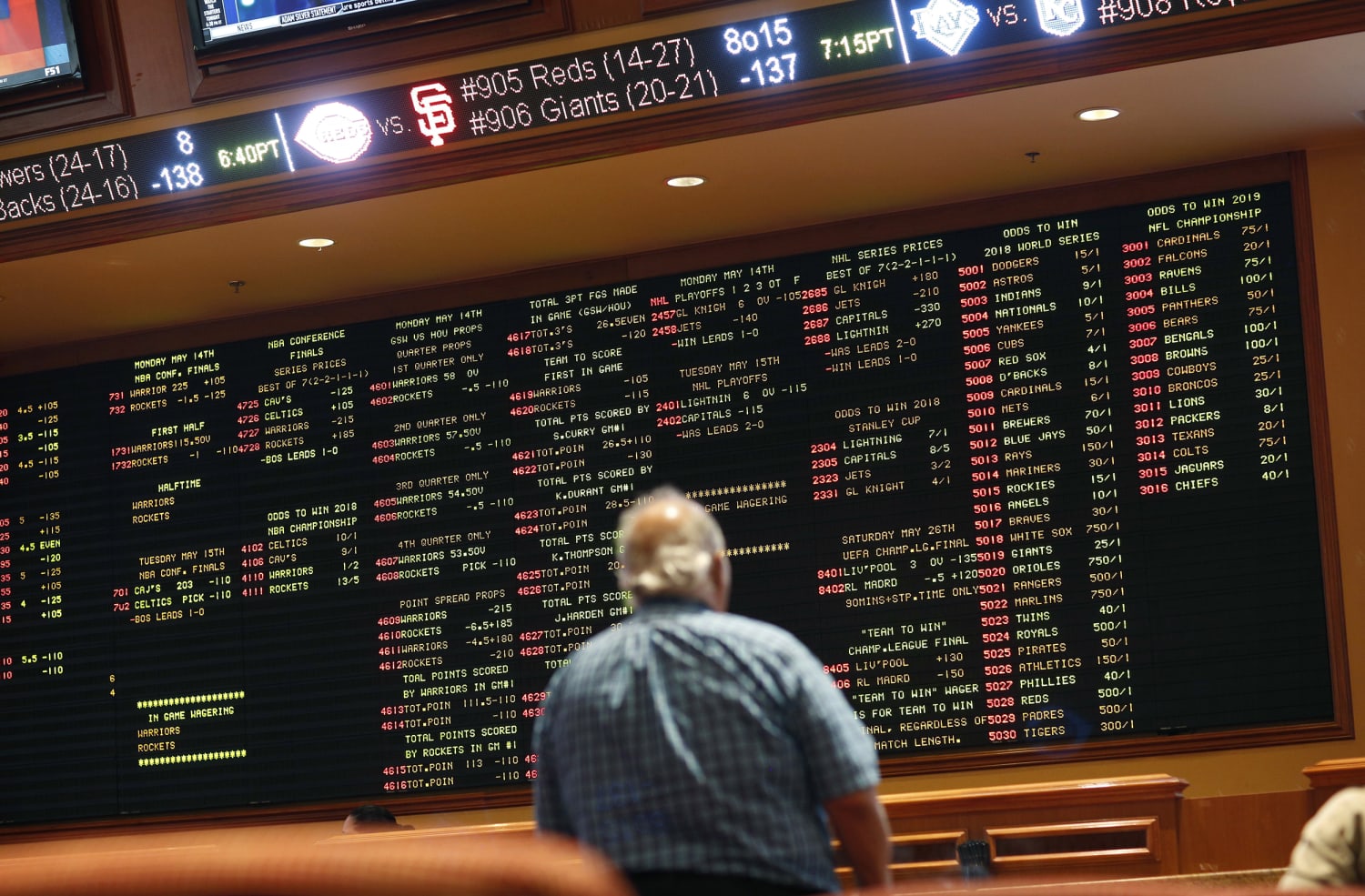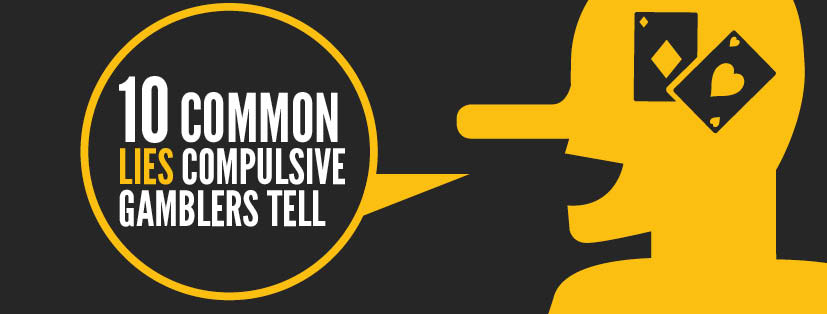When Did Gambling Become Legal In Ohio
OnMay 14, 2018, the United States Supreme Court held in Murphy v. NCAA that certain provisions of the federal Professionaland Amateur Sports Protection Act of 1992 (PASPA) violated theanti-commandeering rule of the Constitution and that these provisions could notbe severed from the act—meaning PASPA is no more. The 6-3 opinion, authored byJustice Alito, explained that PASPA’s language did not make sports betting afederal crime; rather, it forbade the several states from authorizing sportsbetting or an individual relying on state authorization to operate a sportsbetting operation.
WithoutPASPA, individual states are now free to authorize sports betting at theirleisure, and some have already taken advantage of its defeat: Delaware,Mississippi, Nevada, New Jersey, New Mexico, Pennsylvania, Rhode Island, andWest Virginia have all legalized sports betting to some extent. New Jersey inparticular was well-prepared to roll out a new sports betting regime—itscasinos generated $63 million from sports betting in just the first threemonths of 2019, amounting to $7.7 million in taxes for the state.
OnMarch 14, 2019, Ohio State Senators John Eklund (R-Chardon) and Sean O’Brien(D-Bazetta) introduced Senate Bill 111 to bring legal sports betting to Ohio.This proposal would authorize the Ohio Casino Control Commission to license the11 casinos and racinos across the state to begin operating sports betting, bothon-site and through branded websites or web-based applications. S.B. 111 would alsolevy a tax on total sports wager receipts collected by casino operators at arate of 6.25%, in addition to enacting a $100,000 fee for operators to becomelicensed to operate sports betting facilities. Further, casino operators wouldhave to pay an administrative fee of $100,000 for every five years of operationafter their initial licensure.
- Ohio is another sports-crazy state that’s behind in legalizing sports gambling, especially given the action in many of its Midwestern neighbors. Lawmakers held out hope for a bill in the final moments of 2020, but it seems more likely a fresh set of legislators will have to take a new bill when the 2021 session begins.
- Key People in the Case. Dollree Map: Central to the case. Police searched her house without a warrant, and charged her with possession of obscene materials. Inconsequential, but interesting, details about her life include: she was the ex-wife of Jimmy Bivens, a famous boxer; and she was a 'known friend' of those who ran the gambling rings in Cleveland, Ohio.
Ohio voters authorized casino gambling in 2009, narrowly approving a constitutional amendment (read the amendment) conceived and championed by Rock Ohio Caesars, owner of the Horseshoe casinos,. The number of people calling Ohio's Gambling Helpline or adding themselves to the state's Voluntary Exclusion Program has gone up. In February 2013, the voluntary exclusion list had one person.
Justthis month, the Ohio House of Representatives saw the introduction of its owncompeting proposal to legalize sports betting in the state. In contrast to S.B.111, House Bill 194 would authorize the Ohio State Lottery Commission toregulate and license sports betting operators under the Commission’s broadauthority to establish lotteries. In addition to establishing sports bettingoperators’ licenses for Ohio’s casinos and racinos, H.B. 194 would also allow fraternaland veterans’ organizations across the state to place single sports bettingterminals in their organizational facilities for their members’ use. Theproposal would levy a 10% tax on sports wager receipts and impose a $100,000 licensurefee on casinos/racinos and a $1,000 licensure fee on fraternal and veterans’ organizations.Casinos and racinos would also be subject to an annual $100,000 license renewalfee.
Thebottom line is that sports betting in Ohio—much like the medical marijuanaprogram—is here to stay. Moreover, state-sanctioned sports betting will inevitablycreate a new set of legal challenges and considerations, such as whatregulations the State will promulgate to govern licensure, and how potentiallicensees can position themselves to quickly navigate the application processto take advantage of this rapidly expanding market.

When Did Gambling Become Legal In Ohio United States
At Crabbe, Brown & James, our attorneys have significant experience navigating administrative agencies’ complex rules and regulations surrounding license applications, renewals, and appeals in Ohio and throughout the country. Our clients include applicants to the Ohio Medical Marijuana Control Program as well as gaming clients with licenses and operations in dozens of states. Our legal team at Crabbe, Brown & James is uniquely positioned to advise and assist clients in this developing area of commerce.

For many years, Ohio was not a player in casino gambling. Players had to make the trip to neighboring states like Indiana and Pennsylvania to scratch their itch.
However, in 2009, Ohio decided to authorize the licensing of four land-based casinos. One in each of the major cities (Cleveland, Cincinnati, Columbus, and Toledo). It took three years, but between May 2012 and March 2013, each of the four casinos opened its doors.
Slot machine-type gaming was further expanded by a legislative action in 2012 that put video lottery terminals (or VLTs) into the seven racetracks. VLTs are functionally the same as slot machines. They are actually administered differently and considered a form of lottery gambling, rather than a pure slot machine.
Still, in just five years, Ohio has managed to provide its residents with more than 18,000 video gaming and slot machine options – along with table games, poker, and horse racing.
Ohio now finds itself in an odd position: perhaps having too many casinos available for its own good, both inside and near the state. Many of the state’s gambling options are clustered in its northeastern quadrant. Revenues are declining for the four Las Vegas-style casinos. The drop is largely being blamed on the proliferation of racinos throughout the state. These attract some of the vital slots gamblers away from the four big-city venues (sometimes to racinos inside the same city).
When Did Gambling Become Legal In Ohio 2019
Many experts believe that the northeastern United States in general is over-saturated with casinos. There are simply not enough customer dollars to go around.

Still, as long as state legislatures have budget overruns and a desire not to raise taxes on consumer products, casino gambling will likely be a go-to option for states in years to come. This is especially true if the door for gambling has already been opened. Below are the 11 casinos and racinos in Ohio.
Additionally, another favorite kind of gambling could be on its way to Ohio: sports betting. Read on for details.
Sweepstakes casinos in Ohio

Social casino site options
Several of Ohio’s casinos have free sites available through their websites. The two Hollywood Gaming casinos (Dayton Raceway and Mahoning Valley) and the three Jack casinos (Cincinnati, Cleveland, and Thistledown) all offer visitors the opportunity to sample the brands of slots available at their land-based operations for free. This practice continues to be a wise idea. It both familiarizes and desensitizes customers and potential customers with the variety of games they can play.
In effect, customers will know what machines they want to play as soon as they step through the door. Jack’s play money site even offers free poker and table games, further enhancing the experience. All the sites allow players to link their player cards to their play money accounts. This leaves open the possibility that the casinos could link comps to the play money functionality and increase the likelihood of new and returning customers entering the premises.
As usual, Zynga, Slotomania, Big Fish, and Doubledown are all accessible from Ohio social media sites. MyVegas, the ubiquitous MGM-owned free comp site is also available. However, its usefulness is limited, as there are no MGM-owned properties nearby. As it stands, House of Blues and Gray Line Tours are likely the only options for redemption. Still, Ohioans have some avenues if they’d like to play the games without risking any money.
Ohio sports betting
While there are a few gambling options in the Buckeye State, sports betting is not one of them, at least for now.
There are legislative efforts currently making the round in Columbus to legalize sports betting but thus far, nothing of significance has happened. One hold up lawmakers are finding difficult to overcome is deciding which government agency will oversee Ohio sports betting, the Ohio Lottery or Casino Commission.
However, at least one operator appears to be getting its ducks in a row. Penn National Gaming and Kindred have struck a partnership that would see the latter’s brand Unibet enter Ohio by way of Penn National’s Hollywood Casino. For now, the deal means nothing until sports betting is officially legal in the state.
Land-based slots options
| Property | Location | Number of Slots |
|---|---|---|
| Belterra Park Gaming and Entertainment Center | Cincinnati | 1,300 |
| Hard Rock Rocksino Northfield Park | Northfield | 2,200 |
| Hollywood Casino Columbus | Columbus | 2,200 |
| Hollywood Casino Toledo | Toledo | 2,200 |
| Hollywood Gaming at Dayton Raceway | Dayton | 1,000 |
| Hollywood Gaming at Mahoning Valley Race Course | Youngstown | 850 |
| Jack Cincinnati Casino | Cincinnati | 1,900 |
| Jack Cleveland Casino | Cleveland | 1,500 |
| Miami Valley Gaming | Lebanon | 1,600 |
| Scioto Downs Racino | Columbus | 2,200 |
| Jack Thistledown Racino | North Randall | 1,500 |
Online gambling options
There are no laws on the books for or against online gambling in Ohio. As such, there are no officially-regulated options for residents and visitors to the Buckeye State.
However, the state just received a commissioned study from Spectrum Gaming Group. Among other recommendations, it suggested the state legalize online gambling to maximize its tax revenue. So, it is possible that an Ohio iGaming bill could happen – particularly after legislators have a chance to see how online gambling performs in neighboring Pennsylvania.
Operator profile

Jack Entertainment
Jack Entertainment LLC is a Detroit-based proprietor of several casinos and racetracks throughout the United States. Though the majority of its holdings are in Ohio, it also has properties in Michigan, Kentucky, and Maryland. The company is a subsidiary of Quicken Loans, which means it is in the same family of companies as the Cleveland Cavaliers.
The CEO for the company is Matthew Cullen. He also serves as a principal in the Rock Ventures holding company, which is the chief administrator of all Quicken’s portfolio. However, the company’s more industry-specific expert is its chief operating officer, Mark Dunkeson. Prior to taking this role at Jack, Dunkeson served as a senior vice president for Station Casinos. They are a Las Vegas-based company that operates a chain of casinos targeting the locals market, rather than the tourist segment. This fits in well with the market of regional casinos like the Ohio offerings.
Like most Ohio casinos, Jack’s portfolio is facing increasing competitive pressure, and its revenues are suffering.
In fact, Jack Cleveland Casino’s revenues for December 2016 are down 32 percent from 2013. However, in that four-year span, three racinos have opened nearby, squeezing the market and making exceptional returns more difficult. The casino (and others in the company’s portfolio) are also no longer novelties for Ohioans. The initial furor – whatever it may have been – is gone.
Still, the Cleveland location reported revenue north of $200 million in 2016, so there is still significant cashflow. It remains to be seen how companies like Jack will navigate an increasingly congested market. It is reasonable to assume the consumer is in a good place to benefit from competition.
Ohio slot players and other gamblers, keep your eyes peeled and your ears to the ground. Amazing promotions could happen anytime.
State legal environment
| Permitted/Offered? | Notes & Restrictions | |
|---|---|---|
| Land-based Gambling | Yes | Clustered in northeast part of state |
| Online Gambling | No | State-commissioned study in 2016 recommended legalization, so it may not be far away |
| Lottery | Yes | Includes video lottery terminals at seven racinos |
| Charitable or House-based Gambling | Yes | Bingo only – charity poker disallowed |
| Minimum Gambling Age | 18 for horse racing; 21 for casinos |